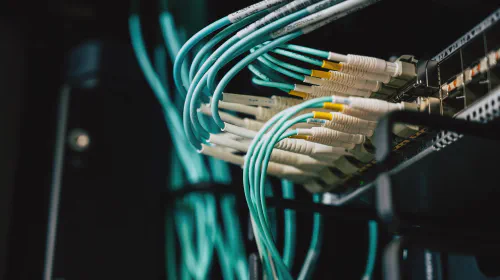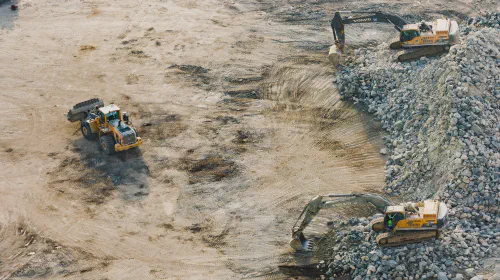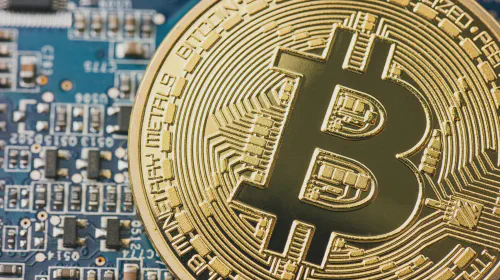Understanding Mining Pools: Collaboration for Cryptocurrency Mining
Salomon Kisters
Feb 22, 2023This post may contain affiliate links. If you use these links to buy something we may earn a commission. Thanks!
For generations, miners have invested time, money, and hard work into extracting valuable commodities from the earth. The rise of cryptocurrency has introduced a new form of mining, where digital currency miners also invest substantial resources to compete in the highly competitive digital mining industry.
There are numerous cryptocurrencies that miners can work on to obtain coins and rewards. To increase their chances of success, individual miners often join forces and work together in a team effort called a mining pool.
What is Crypto Mining?
Cryptocurrency mining is a process where digital currencies such as Bitcoin are put into a blockchain network for worldwide transmission. A blockchain is defined as a decentralized virtual register with a record of all the transactions happening on it. The decentralization process has made blockchains devoid of supervision from administrative entities such as banks or the government.
Mining requires highly developed assets, energy, and advanced data processing capabilities. Miners resolve intricate numerical problems for the mining of new blocks. Solving the problem first brings rewards to the miner before the start of a new cycle. Mining is, therefore, an integral part of a blockchain’s functionality as it lets miners validate digital currency before it is distributed for public use. Miners can also earn rewards without needing to pay a participation fee or access to mining blocks.
With the emergence of larger miners, there is now less availability for mining. Smaller miners cannot take on larger groups and corporations with enormous mining rigs and unlimited funds. Due to this shortcoming, those without such resources have to look to other avenues to remain competitive in the market. Mining pools allow smaller miners to participate in crypto mining and keep up with larger organizations without severe financial strain.
What is a Mining Pool?
A mining pool is a group of digital miners joining forces to create new blocks. The payout from the mining is divided among the participants according to the degree of their contribution.
A mining coordinator leads every mining pool. All other members must pay a small participation fee to the pool manager. The members are eventually compensated according to their contribution.
Mining pools benefit smaller miners by allowing them to consolidate their resources to purchase the mining equipment instead of the burden falling on to a single individual. The more individuals combine their forces, the greater their chance of solving the mathematical problem for mining a new block. Mining pools through this setup allow miners to take on and compete with the power of large organizations. The participants of the collections also receive a share of the profit proportional to the work they had done.
The Workings of Mining Pools
The operating system of mining pools works on three major elements that unite to greatly enhance collaboration and increase the efficacy of all the mining pool members. These include:
- Cooperative work protocol
- Cooperative mining service
- Mining software
Cooperative Work Protocol
The cooperative work service allows a multitude of miners to work on a single block simultaneously using the algorithm. A server linked to all the miners in the pool is used by the blockchain and its local digital currency, which allows for tracking everyone’s progress in the same lock.
Cooperative Mining Service
In a cooperative mining service, a server acts as a connection, allowing multiple participants to combine their resources instantaneously and simultaneously. The server used is referred to as a cooperative mining service server. The presence of a server is counterproductive to the identity of the mining as a decentralized platform. However, using a server is essential for the maintenance of the generation of blocks and the facilitation of profits.
Mining Software
Every mining software has distinct and well-defined features and performance it provides to those using it. It forms a connection between the mining pool and the server. It also acquires the information necessary to solve complex equations for the miners. As soon as the software discovers a solution, it informs the miner of the answer and then moves on to solve the equation for the next block.
Reward Systems
There are multiple ways through which mining pools dispense profits, and the most common methods include the following:
Pay-per-share is a relatively direct and uncomplicated method of payment. As suggested by its name, the members of the miner’s pool are rewarded according to the number of shares they contribute towards the block. It is based on statistical data, with the stakes being valued at an already-established amount before the discovery of a block. Miners get paid through this system with or without the group finding a block.
Full pay-per-share (FPPS) is otherwise known as PPS Plus. It has a similar mode of operation to the standard pay-per-share system. The main difference comes with the miners getting paid a transaction fee as a reward for every block found. With the discovery of each block, the rewards are distributed evenly among all the miners. The FPPS system always guarantees the miners a standard reward and transaction fee.
In pay-per-last N share, the miners are only rewarded on discovering a new block. The pool will then return and try to find shares that have been legally deposited before a winning block can be found. This period is referred to as the “time window”. There is tallying of the shares that have been distributed during this time.
Common Examples of Mining Pools
The world’s first mining pool was launched in 2010, known as the Slush Pool. It is now known as Braiins. After its launch, the digital mining industry exploded into a ruthless and extensive sector, escalated by the entry of other cryptocurrencies, such as Ethereum and Bitcoin, into the market.
While initially, mining pools were only an attribute of Bitcoin, many other digital currencies now jumped on the trend and have dedicated mining pools. Mining pools have now become an integral aspect of the ecosystem of virtual currencies. The reason for this is the consistent currency mining taking place through pools and the blockchain’s seamless functioning.
Advantages of Mining Pools
While individual mining provides complete reward ownership, the odds of success are highly restricted due to enormous power and resource requirements. Individuals are seldom lucrative in the mining industry. Many cryptocurrencies have become increasingly difficult to mine in recent years as their popularity has grown, and the costs of expensive hardware and electricity necessary to be a competitive miner frequently outweigh the potential earnings.
Mining pools need less hardware and processing power from each participant, boosting the possibility of profitability. Whereas a lone miner has a limited chance of successfully discovering a block and earning a mining reward, cooperating with others dramatically increases the likelihood of success.
Disadvantages of Mining Pools
By joining a mining pool, individuals give up part of their autonomy in the mining process. They are frequently bound by pool terms, which may impact how the mining operation is carried out. They are also required to disperse any potential advantages, which reduces the amount of profit for a pool participant.
A small handful of mining pools, such as AntPool, Poolin, and F2Pool, dominate the Bitcoin mining process. Even though many pools attempt to be decentralized, these organizations control a significant piece of the Bitcoin blockchain. Some cryptocurrency proponents feel that many robust mining pools violate Bitcoin and other cryptocurrency’s decentralized characteristics.
Final thoughts
Individual mining is getting less viable as it spreads due to the availability of high-speed equipment compatible with household PCs. Joining a pool is a far more profitable technique to mine Bitcoins today, especially because the difficulty rises with each coin received.
Most individuals choose to join a mining pool, which gives them high-probability limited profits rather than low-probability enormous gains. It’s easy to see how someone could claim that the network isn’t entirely decentralized.
At the same time, one can question if total decentralization is possible in any context. Ten to fifteen mining pools administer the vast majority of the network. Still, this is good news as long as power distribution is adequate and [specific pools do not surpass 51% of the network](/blog/what-is-a-51-attack-on-the-blockchain/
Stay informed with the latest insights in Crypto, Blockchain, and Cyber-Security! Subscribe to our newsletter now to receive exclusive updates, expert analyses, and current developments directly to your inbox. Don't miss the opportunity to expand your knowledge and stay up-to-date.
Love what you're reading? Subscribe for top stories in Crypto, Blockchain, and Cyber-Security. Stay informed with exclusive updates.
Please note that the Content may have been generated with the Help of AI. The editorial content of OriginStamp AG does not constitute a recommendation for investment or purchase advice. In principle, an investment can also lead to a total loss. Therefore, please seek advice before making an investment decision.

How Do Blockchain Miners Get Paid? | Explained in Detail
Learn how blockchain miners get paid by solving complex mathematical puzzles to earn cryptocurrency rewards like Bitcoin.

Blockchain Without Mining - Is It Possible? Exploring Alternatives and Environmental Impact
Blockchain without mining is possible through alternatives like Proof of Stake mining, reducing energy consumption and environmental impact.

Block Rewards vs. Transaction Fees - Why We Need Both
Block rewards and transaction fees are two important incentives for miners. But why do we need both?
Protect your documents
Your gateway to unforgeable data. Imprint the authenticity of your information with our blockchain timestamp